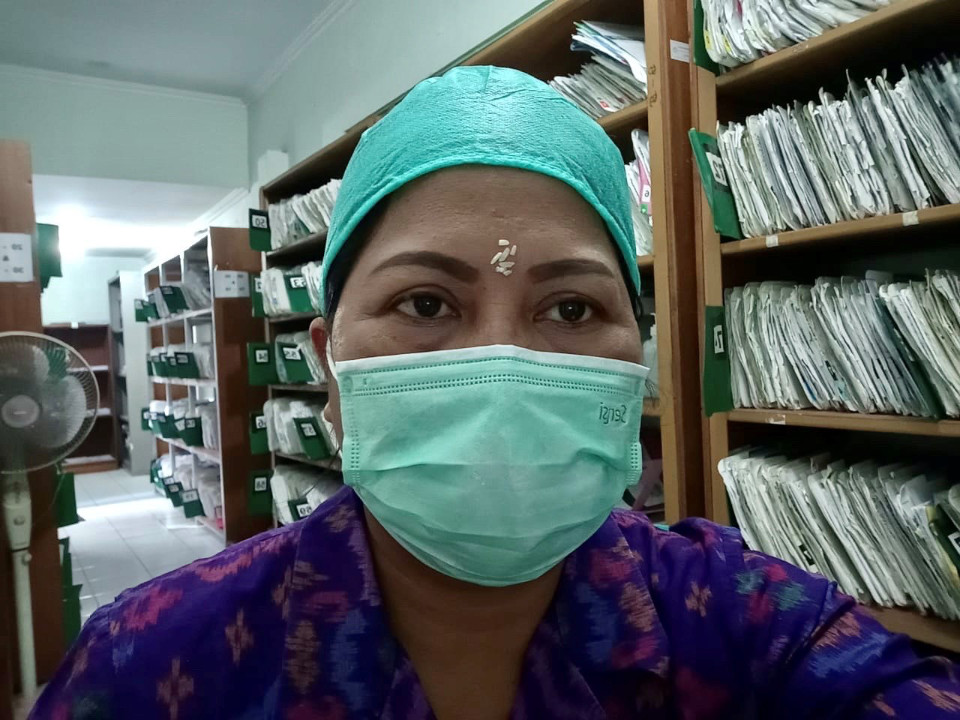From where I stand: During the COVID-19 pandemic, “I may not be physically present, but I want to still be there to give mental and emotional support.”
Date:
Ni Ketut Rediten, widely known as Desi, is a counsellor and advocate for people living with HIV. She works for the Provincial Health Office and is stationed at Voluntary Counselling and Testing Services on HIV/AIDS, in Sanglah public hospital in Bali, Indonesia. She was interviewed on April 16.

Interviewed by Radhiska Anggiana.
Before the COVID-19 outbreak, I [along] with four other counsellors would handle at least a 100 patients every day. Now, although I have less patients visiting the hospital unless it’s for a necessary doctor’s appointment or to pick up medication, my work doesn’t stop there.
When at home, my cell phone is glued to my hand to listen to and provide all the necessary information to my HIV-positive peers. With the current situation, I may not be physically present, but I want to still be there to give mental and emotional support.
The coronavirus pandemic is difficult for everyone. The idyllic island of Bali, the place where I live and work, has been hit hard by the situation. The local residents of Bali have traditionally relied on the tourism industry, but with the increased travel restrictions and with hotels and restaurants being temporarily closed, many people are left without jobs.
Many women living with HIV are also breadwinners. With this situation, they can’t earn money anymore to help the family, and with the school closures, they would also need to incur additional expenses to purchase mobile data plans. The financial hardship is even more challenging when they run out of medication. The choice is between spending money to go to hospital and get the medication or retain the meager savings to sustain their livelihood.
There is also disruption in the supply chain, which has affected the availability of ARVs [antiretroviral drugs, for HIV]. As a peer counsellor, I am my peers’ biggest cheerleader, the one who always encourages them to never stop taking the ARVs. This pandemic has changed everything: the scarcity of the ARVs, the thought of having to change the medication, and with the struggle to make ends meet, some of them lost all hope. This is where I have to keep them motivated, lift their spirits, and provide them with information [on] where and in which hospital the medication is available.
In addition to this, I also fundraise and help in distributing food and basic commodities to people living with HIV who have lost their jobs because of the COVID-19 situation. This situation is not easy, but I see increased solidarity and how people are now supporting one another.
Besides my children, my HIV-positive peers are my source of energy that keeps my spirit up. I wish this situation [would] get better and Bali could recover. When this pandemic ends, I want to have a get-together with friends from the HIV community, which we usually have every month. It is a safe space where we can share our feelingsand talk about things that we can’t openly discuss outside the community.”
Ni Ketut Rediten also is a member of Indonesian Positive Women Network, a national network established in 2006 by and for women who are living with HIV. She is a counsellor of the network’s Emak Club (Moms Club), which helps pregnant women living with HIV. Her efforts support United Nations Sustainable Development Goal 3, on Good Health and Well-Being.